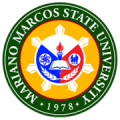<font style="font-weight: bold; text-decoration: underline;" size="5"><font size="3">On production of ethanol from sweet sorghum and cassava</font></font><font style="font-weight: bold;" size
THE UNIVERSITY has forged an agreement with three other national development institutions for the utilization of sweet sorghum and cassava as feedstock for ethanol production under the Integrated R&D Program on Biofuels.
The agreement was signed this year by the Department of Science and Technology (DOST) Secretary Estrella F. Alabastro, Philippine Council for Agriculture, Forestry, and Natural Resources Research and Development Executive Director Patricio S. Faylon, University of the Philippines System President Emerlinda R. Roman, University of the Philippines Los Banos Chancellor Luis Rey I. Velasco, and MMSU President Miriam E.Pascua.
The confirmation of the said agreement was made by the BOR recently during its 77th regular meeting, Sept. 6.
The agreement seeks to implement the subprogram of the Integrated R&D Program on Biofuels: Subprogram on utilization of sweet sorghum and cassava as feedstock for ethanol production. The subprogram generally aims to integrate R&D efforts on the use of sweet sorghum for ethanol production to support the development of the overall biofuel industry in the country toward energy independence and cleaner environmental juxtapose with the government’s goal of providing rural employment and income.
The subprogram has three component projects for its Phase I implementation: 1) sweet sorghum germplasm development, 2) performance evaluation of sweet sorghum lines for bio-ethanol and grains under different ecological zones, and 3) development of production technology protocol for sweet sorghum.
The DOST shall provide the financial assistance to the component projects of the subprogram with an initial grant of P5, 623,602.80 for the Year 1 implementation of Phase I covering May 16, 2007-May 15, 2008.
The subprogram will be implemented for three years with total DOST budget support of P10,580,830.20.
MMSU and UPLB serve as implementing agencies of the subprogram.
The agreement was signed this year by the Department of Science and Technology (DOST) Secretary Estrella F. Alabastro, Philippine Council for Agriculture, Forestry, and Natural Resources Research and Development Executive Director Patricio S. Faylon, University of the Philippines System President Emerlinda R. Roman, University of the Philippines Los Banos Chancellor Luis Rey I. Velasco, and MMSU President Miriam E.Pascua.
The confirmation of the said agreement was made by the BOR recently during its 77th regular meeting, Sept. 6.
The agreement seeks to implement the subprogram of the Integrated R&D Program on Biofuels: Subprogram on utilization of sweet sorghum and cassava as feedstock for ethanol production. The subprogram generally aims to integrate R&D efforts on the use of sweet sorghum for ethanol production to support the development of the overall biofuel industry in the country toward energy independence and cleaner environmental juxtapose with the government’s goal of providing rural employment and income.
The subprogram has three component projects for its Phase I implementation: 1) sweet sorghum germplasm development, 2) performance evaluation of sweet sorghum lines for bio-ethanol and grains under different ecological zones, and 3) development of production technology protocol for sweet sorghum.
The DOST shall provide the financial assistance to the component projects of the subprogram with an initial grant of P5, 623,602.80 for the Year 1 implementation of Phase I covering May 16, 2007-May 15, 2008.
The subprogram will be implemented for three years with total DOST budget support of P10,580,830.20.
MMSU and UPLB serve as implementing agencies of the subprogram.
Gallery
✕
Dear Valued Client,
We will be introducing our newly upgraded website on October 31, 2024 – offering faster access, improved navigation, and enriched content for students, faculty, partners, and stakeholders. Experience how we cultivate minds and transform futures at MMSU.
Continue to the New Website

 CAFSD
CAFSD CASAT
CASAT CAS
CAS CBEA
CBEA CCIS
CCIS COE
COE CHS
CHS CIT
CIT CTE
CTE COM
COM CVM
CVM Graduate School
Graduate School



_91c2e13bde54cafe009c166f9aa4199f.jpg)
